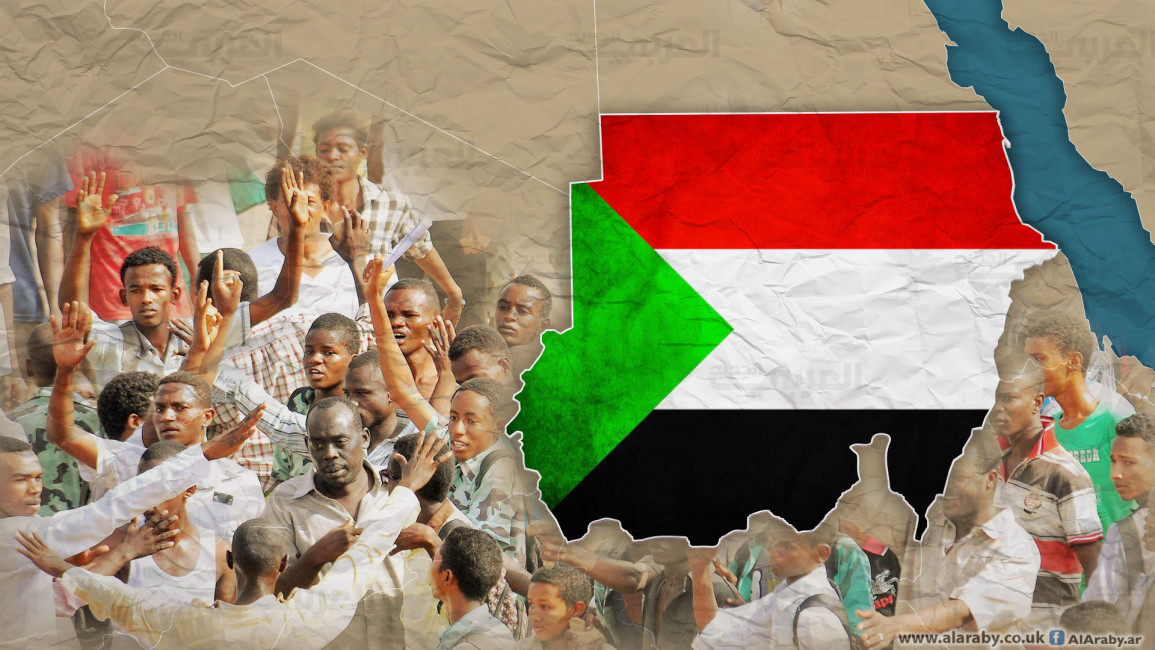Sudan 'blocks internet access, shutters schools' amid escalating bread protests
The Sudanese authorities began to block internet connections gradually on Thursday night, but users have said they were able to access some services on Friday, according to The New Arab Arabic reporter in Khartoum Abdelhameed Awad.
Internet users seem to be unable to access social media platforms like Facebook and WhatsApp, which activists were using to organise and cover protests.
Rights and internet freedom groups immediately criticised the measure, which has become a standard response by regimes in the region to quickly contain protests in the wake of Arab Spring wave of uprisings.
Internet shut downs "stops defenders from documenting or sharing info about abuse," tweeted internet freedom group Access Now in response to the report. "They also block access to emergency services, hurt journalism and hobble businesses," it added.
The Sudanese authorities also shuttered schools in the state of Khartoum "until further notice", according to the state's Ministry of Education. Local sources told The New Arab the decision was prompted by concern highschool students would join the protests.
|
The government's decision to raise the price of a loaf of bread this week from one Sudanese pound to three (from about two to six US cents) has sparked protests across the country.
Six demonstrators were killed in the eastern city of Al-Qadarif and two others in Atbara, also east of Khartoum, officials said on Thursday.
Sudanese police forces fired tear gas to disperse dozens of protesters in the cities of Omdurman and Atbara and the state of North Kordofan, witnesses cited by Reuters said on Friday.
There were also small-scale demonstrations across at least seven neighbourhoods in the capital Khartoum shortly after Friday noon prayers, but they were short-lived, witnesses said.
Sudan deployed troops in the capital Khartoum and other cities on Friday in anticipation of further protests. On Thursday, riot police in Khartoum fired tear gas to disperse demonstrators near the presidential palace, witnesses said.
The police driving in patrol cars were seen carrying clubs and tear gas canisters while the troops held Kalashnikov assault rifles, the witnesses said.
 |
The cost of some commodities has more than doubled, inflation is running at close to 70 percent and the pound has plunged in value. |  |
Return of Al-Mahdi
This week's protests coincided with the return to Sudan of opposition leader Sadeq al-Mahdi, the country's last freely elected leader, whose government was overthrown in a 1989 military coup led by army general Bashir. Al-Mahdi was living in self-imposed exile outside Sudan for nearly a year. Thousands of his supporters welcomed him home Wednesday.
|
Addressing supporters, al-Mahdi proposed the formation of a national unity government to tackle the country's chronic economic problems and the internal displacement of Sudanese as a result of violence.
The protests also follow the start of a campaign by lawmakers loyal to Bashir to rally support for an amendment to the constitution to allow the Sudanese leader, in power for nearly three decades, to run for re-election in 2020.
Bashir was indicted in 2010 by the International Criminal Court for genocide during the conflict in Sudan's western Darfur region, which began in 2003 and is blamed for at least 200,000 deaths.
Sudan's economy has struggled for most of the 29 years Bashir has been in power, with his Islamic rule of the country failing to unite or keep the peace at the religiously and ethnically diverse nation. The situation rapidly deteriorated after the secession of the mainly animist and Christian south of the country in 2011, which deprived Khartoum of most of its oilfields. The secession came after decades of costly war between the south and the mainly Muslim and Arabized north.
The cost of some commodities has more than doubled, inflation is running at close to 70 percent and the pound has plunged in value.
The cost of bread has also risen and shortages have been reported for the past three weeks across several cities, including Khartoum.
Protests broke out in January over the rising cost of food, but they were soon brought under control with the arrest of opposition leaders and activists.
In his latest bid to secure aid and investments, Bashir has in recent years moved closer to oil-rich Gulf Arab nations, especially Saudi Arabia. He has deployed Sudanese troops in Yemen to fight alongside a Saudi-led coalition backing the government there against Iran-aligned rebels.
Bashir has also curbed relations with Iran, Saudi Arabia's regional archrival, to win the goodwill of Riyadh and its Gulf Arab allies. He also moved to mend relations with Egypt, Sudan's powerful neighbour to the north, after a period of tension mostly because of a long-running dispute over an Egyptian-held border area claimed by Sudan.
Agencies contributed to this report.
Follow us on Twitter: @The_NewArab



